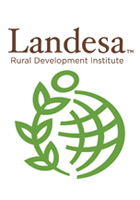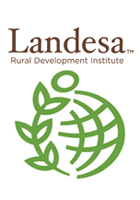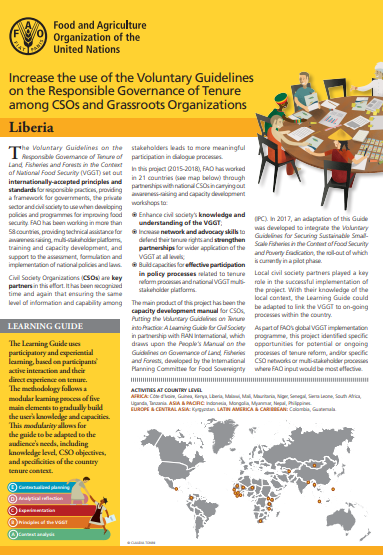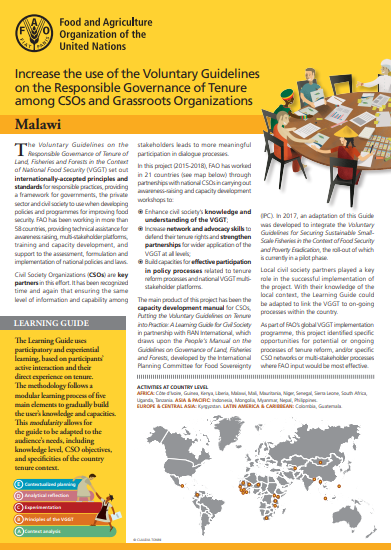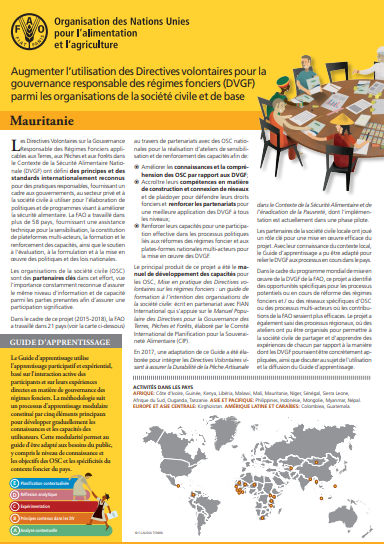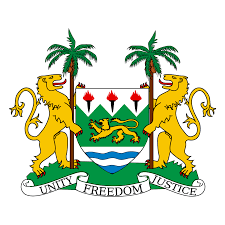LARGE-SCALE FORESTLAND ACQUISITION IN CHINA: FIELD FINDINGS AND RECOMMENDED IMPROVEMENTS
March 2014 – The authors conducted extensive interviews of farmers in twelve villages in southern China, where Stora Enso, a large multinational pulp and paper producer, had acquired large areas of farmers’ forestland rights for its eucalyptus plantations.
IMPROVING LAND GOVERNANCE THROUGH COMMUNITY PARTICIPATION
March 2014 – Odisha, a state on the eastern coast of India, has endeavored over the years to enact laws aimed at providing land to those cultivating it and redistributing ownership of land. Landesa designed and piloted a model where a local youth (called a Community Resource Person) – identified by the community – is trained to provide additional capacity to local government land administration officials to identify and provide title to the formerly landless families. This model was subsequently scaled to cover 1,042 villages in seven districts of the state.
FOCUS ON LAND IN AFRICA: LINKING PROPERTY RIGHTS AND DEVELOPMENT
March 2014 – In most of Africa, land is at the heart of economic, social and political life. Therefore, land and natural resource rights and governance issues profoundly affect and are affected by development initiatives across the continent. To fully succeed and contribute to ending extreme poverty in the post-2015 world, development initiatives must recognize and strengthen the land and natural resource rights of local people, especially the rural poor and women. However, while there is growing awareness of these issues, they are often overlooked.
ENSURING AND PROTECTING THE LAND LEASING RIGHT OF POOR WOMEN IN INDIA
March 2014 – This paper critically examines how lease farming can be a viable livelihood option for landless rural poor, especially women in India. In the absence of land ownership and education, the majority of landless and semi-landless rural women are engaged as low wage agricultural labourers and remain trapped in poverty and indebtedness. Lease farming by landless women in Kerala and Andhra Pradesh shows a pathway for reducing their poverty and enabling upward social mobility.
Increase the use of the Voluntary Guidelines on the Responsible Governance of Tenure among CSOs and Grassroots Organizations_Liberia
The Voluntary Guidelines on the Responsible Governance of Tenure of Land, Fisheries and Forests in the Context of National Food Security (VGGT) set out internationally-accepted principles and standards for responsible practices, providing a framework for governments, the private sector and civil society to use when developing policies and programmes for improving food security.
Increase the use of the Voluntary Guidelines on the Responsible Governance of Tenure among CSOs and Grassroots Organizations_Malawi
The Voluntary Guidelines on the Responsible Governance of Tenure of Land, Fisheries and Forests in the Context of National Food Security (VGGT) set out internationally-accepted principles and standards for responsible practices, providing a framework for governments, the private sector and civil society to use when developing policies and programmes for improving food security.
Augmenter l’utilisation des Directives volontaires pour la gouvernance responsable des régimes fonciers (DVGF) parmi les organisations de la société civile et de base_Mali
Les Directives Volontaires sur la Gouvernance Responsable des Régimes Fonciers applicables aux Terres, aux Pêches et aux Forêts dans le Contexte de la Sécurité Alimentaire Nationale (DVGF) ont défini des principes et des standards internationalement reconnus pour des pratiques responsables, fournissant un cadre aux gouvernements, au secteur privé et à la société civile à utiliser pour l’élaboration de politiques et de programmes visant à améliorer la sécurité alimentaire.
Augmenter l’utilisation des Directives volontaires pour la gouvernance responsable des régimes fonciers (DVGF) parmi les organisations de la société civile et de base_Mauritanie
Les Directives Volontaires sur la Gouvernance Responsable des Régimes Fonciers applicables aux Terres, aux Pêches et aux Forêts dans le Contexte de la Sécurité Alimentaire Nationale (DVGF) ont défini des principes et des standards internationalement reconnus pour des pratiques responsables, fournissant un cadre aux gouvernements, au secteur privé et à la société civile à utiliser pour l’élaboration de politiques et de programmes visant à améliorer la sécurité alimentaire.
Augmenter l’utilisation des Directives volontaires pour la gouvernance responsable des régimes fonciers (DVGF) parmi les organisations de la société civile et de base_Niger
Les Directives Volontaires sur la Gouvernance Responsable des Régimes Fonciers applicables aux Terres, aux Pêches et aux Forêts dans le Contexte de la Sécurité Alimentaire Nationale (DVGF) ont défini des principes et des standards internationalement reconnus pour des pratiques responsables, fournissant un cadre aux gouvernements, au secteur privé et à la société civile à utiliser pour l’élaboration de politiques et de programmes visant à améliorer la sécurité alimentaire.
Augmenter l’utilisation des Directives volontaires pour la gouvernance responsable des régimes fonciers (DVGF) parmi les organisations de la société civile et de base
Les Directives Volontaires sur la Gouvernance Responsable des Régimes Fonciers applicables aux Terres, aux Pêches et aux Forêts dans le Contexte de la Sécurité Alimentaire Nationale (DVGF) ont défini des principes et des standards internationalement reconnus pour des pratiques responsables, fournissant un cadre aux gouvernements, au secteur privé et à la société civile à utiliser pour l’élaboration de politiques et de programmes visant à améliorer la sécurité alimentaire.
Increase the use of the Voluntary Guidelines on the Responsible Governance of Tenure among CSOs and Grassroots Organizations_Sierra Leone
The Voluntary Guidelines on the Responsible Governance of Tenure of Land, Fisheries and Forests in the Context of National Food Security (VGGT) set out internationally-accepted principles and standards for responsible practices, providing a framework for governments, the private sector and civil society to use when developing policies and programmes for improving food security.


